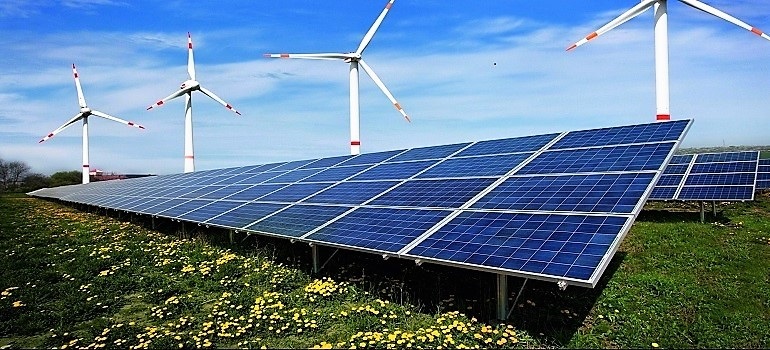
Renewables sector in India is expected to see strong growth and favourable policy support going forward as traditional fossil fuel power projects are facing growing transition risks, an HSBC report says. According to the global financial services major, the solar sector will continue to receive favourable policy momentum, especially given India’s leadership role in the International Solar Alliance.
“Given the woes (financial and operational) facing the coal power sector and rapidly falling renewable energy generation costs, we believe renewables in India will continue to see strong growth and expect favourable policy support,” HSBC said in a research note.
Investment in the power sector in India is important to maintain economic growth and also to improve the livelihoods of large sections of the population which are still without electricity.
Coal now forms one-third of total installed generation capacity, but some projects are unable to sustain themselves due to issues including the non-availability of fuel, lack of purchase agreements and tariff disputes, the report said.
“We think the economics will continue to shift in favour of lower carbon power in India, especially as it promotes solar,” the report added.
According to the report, fiscal year 2016-17 was a turning point for renewables as newly installed capacity (11GW) surpassed that of newly installed coal (7GW) for the first time.
“An additional 12GW of renewables (mostly wind and solar) was installed between April 2017 to May 2018, more than double that of coal power plants (5GW),” the HSBC report noted.
Renewable installations have been outpacing coal largely because the price of solar power has declined by over 40 per cent, making it more competitive against coal and more attractive for new-build projects.

